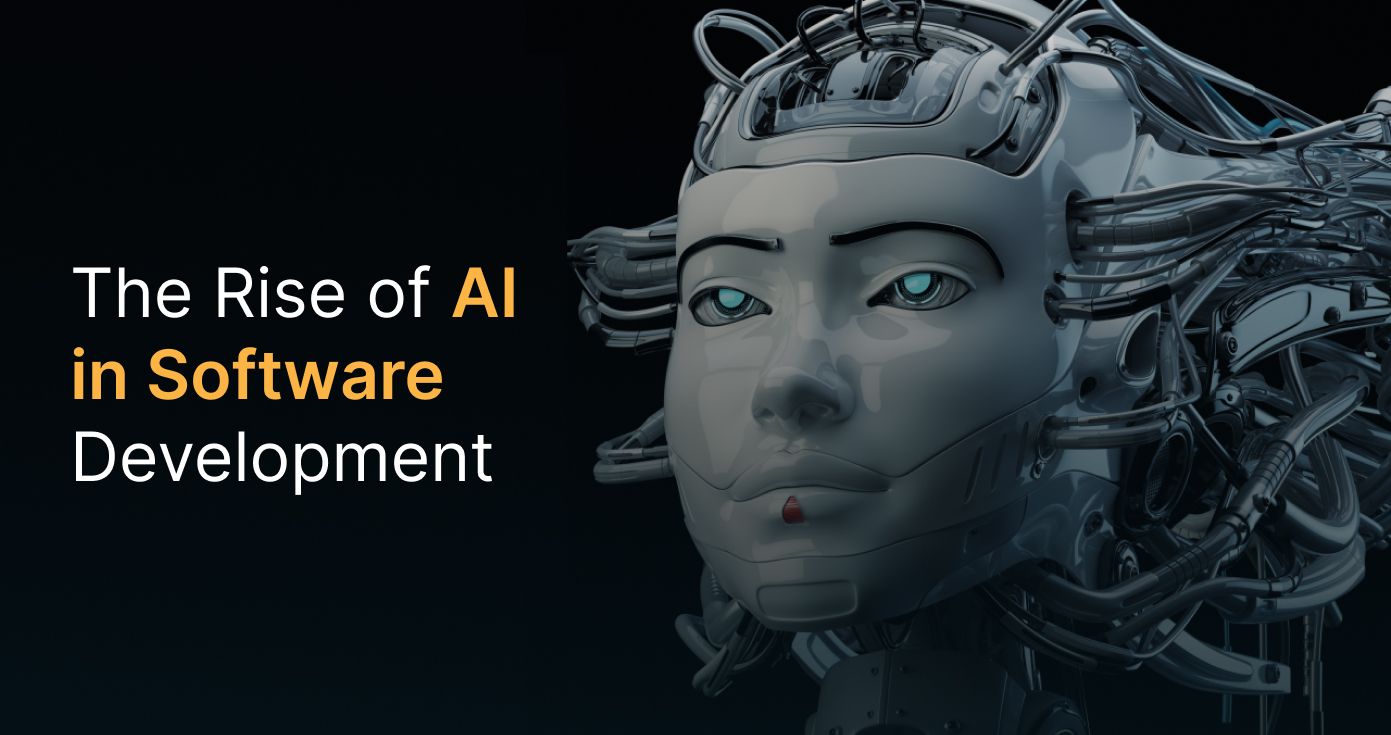
The Rise of AI-Powered Software Development: Transforming the Future of Technology
Introduction to AI in Software Development
The integration of Artificial Intelligence (AI) into software development has triggered a significant transformation in the technology landscape. As organizations strive to adopt innovative solutions that improve their operations, the utilization of AI technologies has emerged as a growing trend within the industry. AI is revolutionizing various stages of software development, offering developers tools that enhance productivity, streamline workflows, and ensure higher-quality output.
One of the primary benefits of incorporating AI in software development is the increase in efficiency. Traditional development processes often demand considerable time and resources; however, AI-driven tools can automate repetitive tasks, allowing developers to focus on more complex problem-solving. By leveraging machine learning algorithms and natural language processing, AI systems are capable of analyzing vast amounts of data, identifying patterns, and suggesting code improvements. This not only accelerates project timelines but also reduces the likelihood of human error.
In addition to efficiency, AI enhances accuracy in software development. Advanced AI technologies can perform extensive testing of code, identifying bugs or vulnerabilities earlier in the development cycle. This capability ensures a more robust final product, alleviating potential issues that may arise after deployment. Furthermore, predictive analytics powered by AI can anticipate user needs and project requirements, allowing developers to create more user-centric applications.
Lastly, AI contributes to improved user experiences. By analyzing user behavior and preferences, AI can facilitate the development of tailored solutions that meet specific demands. This personalization enhances engagement, fostering a stronger connection between users and applications. As AI continues to evolve, its role in software development will undoubtedly expand, ultimately shaping the future of technology in profound ways.
The Benefits of AI-Powered Development Tools
AI-powered development tools are revolutionizing the software development landscape by providing a plethora of advantages that enhance efficiency and productivity. One of the most significant benefits lies in the automation of mundane tasks. By handling routine activities such as code formatting, unit testing, and documentation generation, these tools allow developers to focus on more complex and value-added responsibilities. This not only streamlines the development process but also reduces the likelihood of human error, leading to improved code quality.
Another key advantage of AI-driven software development tools is their capacity for predictive coding assistance. By analyzing vast amounts of existing code, AI algorithms can suggest code completions and snippets tailored to the specific context of the project. This predictive capability empowers developers to write code more quickly and accurately, thereby minimizing the time spent on searching for documentation or examples. As a result, developers can achieve a higher level of productivity, accelerating project timelines.
Additionally, the integration of AI in bug detection and resolution processes is a transformative aspect of modern software development. With machine learning algorithms capable of analyzing code for vulnerabilities and potential errors, developers can catch and address issues early in the development cycle. This proactive approach to debugging not only enhances software reliability but also saves considerable time and resources that would otherwise be spent on post-deployment fixes.
Moreover, AI-powered tools facilitate code refactoring, simplifying the process of improving and restructuring existing code without altering its external behavior. This capability is essential for maintaining clean, efficient codebases, especially in projects that undergo frequent updates. By leveraging these tools, teams can ensure that their software remains adaptable to evolving requirements while preserving its integrity.
In conclusion, the benefits of AI-powered development tools are manifold, enabling faster, more reliable software delivery while empowering developers to maximize their potential in an increasingly complex digital environment.
AI-Driven Development Methodologies
The integration of artificial intelligence into software development methodologies is prominently reshaping the landscape of technology. Agile and DevOps are two frameworks that have significantly benefited from the implementation of AI, which streamlines workflows and enhances overall efficiency.
In agile development, AI tools facilitate adaptive planning and iterative progress. They help in tracking project developments in real-time, allowing teams to respond quickly to changes or challenges. For example, AI algorithms can analyze historical project data to predict potential bottlenecks and suggest proactive solutions. This predictive capability not only improves team collaboration but also ensures that everyone is aligned on the project’s direction and progress.
Meanwhile, in the context of DevOps, AI plays a crucial role in seamless integration and continuous delivery. AI-driven tools can automate various aspects of software deployment, providing significant time savings. Through machine learning, these tools can learn from previous deployments to optimize configurations and detect anomalies. This ensures a smoother deployment process with reduced risk of errors, boosting confidence among development teams.
Furthermore, AI enhances communication within teams, a fundamental aspect of both agile and DevOps practices. Chatbots and virtual assistants powered by AI can facilitate quick information retrieval, making it easier for team members to access relevant resources and stay informed about project status. The resulting increase in collaboration leads to more cohesive teams capable of delivering high-quality software.
Additionally, AI provides valuable insights into project health, enabling teams to make data-driven decisions. By continuously monitoring metrics such as code quality, deployment frequency, and incident response times, AI tools provide a clear overview of project performance. This helps teams identify areas for improvement, ultimately driving the overall productivity and success of software development initiatives.
Intelligent Application Development
Intelligent applications are rapidly reshaping the landscape of software development, leveraging artificial intelligence to enhance user experiences and functionalities. These applications are designed to learn from user interactions, making them increasingly dynamic and personalized. By incorporating AI algorithms, developers can create systems that not only respond to user queries but also anticipate user needs based on previous behaviors and preferences.
One prominent example of intelligent application development is in recommendation systems. Used extensively by e-commerce platforms and streaming services, these systems analyze user behavior and preferences to suggest products, services, or content tailored to individual users. Utilizing machine learning techniques, these systems continuously refine their algorithms, improving the accuracy of their recommendations as they gain more data from user interactions.
Chatbots also exemplify the transformative impact of AI on intelligent application development. Deployed in customer service, these AI-driven conversational agents simulate human interactions, allowing businesses to efficiently handle inquiries, provide support, and resolve issues without human intervention. As these chatbots evolve, they adapt to user language styles and inquiries, becoming more effective and capable of delivering a seamless experience.
Furthermore, personalized user interfaces are becoming integral to intelligent application development. By utilizing data analytics and machine learning, applications can modify their layouts, functionalities, and content according to user habits, ensuring an engaging and efficient experience. This approach helps maintain user engagement, as users are more likely to stay with applications that feel customized to their personal preferences.
Ultimately, the integration of artificial intelligence in application development not only streamlines processes but also facilitates a deeper connection between applications and users, fostering a more enriched digital experience.
Key Challenges in AI Software Development
The adoption of artificial intelligence (AI) in software development is revolutionizing the technology landscape; however, it is not without its challenges. One of the primary concerns in this domain is data privacy. With AI systems relying heavily on large datasets to learn and make decisions, safeguarding sensitive information becomes paramount. Organizations must navigate complex regulations, such as the General Data Protection Regulation (GDPR), while ensuring that user data is processed ethically and securely. This challenge necessitates a careful balance between leveraging data for AI development and protecting individual privacy rights.
Another significant issue arises from the quality of training data used to power AI algorithms. The efficacy of an AI system is directly influenced by the quantity and quality of the data it is trained on. In many cases, developers struggle to obtain high-quality datasets that are representative of real-world scenarios. Poor-quality data can lead to inaccuracies in AI outputs, ultimately affecting the reliability and performance of software applications. Therefore, establishing robust data collection and preprocessing methods is essential for successful AI implementations.
Moreover, biases embedded in AI algorithms pose a critical challenge to equitable software development. AI systems are only as objective as the data they are trained on, and if the input data reflects existing biases, the outputs can perpetuate discrimination. This concern calls for constant vigilance and proactive measures to identify and mitigate biases throughout the AI development lifecycle. Furthermore, the integration of AI tools into existing development frameworks can be a daunting task. Many organizations operate on legacy systems that may not easily accommodate new AI technologies, leading to potential compatibility issues and requiring significant restructuring of workflows. Addressing these multifaceted challenges is vital for a seamless transition into AI-enhanced software development.
Case Studies: Successful AI-Enabled Software Projects
In recent years, numerous companies have embraced artificial intelligence (AI) to enhance their software development processes, resulting in remarkable improvements in efficiency and outcomes. One notable example is Microsoft, which integrated AI into its Azure DevOps platform. By employing machine learning algorithms to predict potential code defects and suggest fixes, the company has significantly reduced debugging time. This proactive approach not only accelerates the development lifecycle but also increases software quality, demonstrating the effectiveness of implementing AI-driven methodologies in software projects.
Another exemplary case is that of Google, where AI has been utilized extensively in the development of its products, such as Google Photos. By harnessing AI technologies for image recognition, Google Photos has enabled users to search and categorize images by merely typing keywords. This project underscores the potential of AI to enhance user experience and functionality, revolutionizing how people interact with software applications. The success of Google Photos highlights the significance of integrating AI in software development to create innovative and user-centric solutions.
A further case in point is the AI-driven customer service platform created by Zendesk. The company’s AI chatbot, Answer Bot, effectively handles inquiries by utilizing natural language processing (NLP). Leveraging AI technologies, this tool analyzes customer questions and provides accurate responses, thereby optimizing customer support operations. This implementation has not only increased response efficiency but also allowed human agents to focus on more complex queries, exemplifying how AI can transform operational workflows in software development.
These case studies exemplify the tangible benefits derived from AI integration within software development projects. By streamlining workflows, enhancing user experiences, and increasing operational efficiency, organizations across various industries are witnessing the remarkable impact of AI-powered solutions. As AI technologies continue to evolve, the potential for future software projects is vast, marking a transformative shift in the domain of technology.
Future Trends in AI Software Development
The intersection of artificial intelligence (AI) and software development is rapidly evolving, presenting several promising trends that are poised to revolutionize the industry. One significant trend is the proliferation of conversational AI, which leverages natural language processing (NLP) capabilities to create software that can understand and respond to human language more effectively. This advancement not only enhances user interaction but also enables developers to integrate intelligent virtual assistants that provide support and efficiently handle user queries.
Another notable development is the rise of machine learning as a service (MLaaS). This emerging model allows organizations to access machine learning tools and resources via cloud platforms, streamlining the process of integrating AI into software applications. With MLaaS, developers can focus on building more robust applications without having to manage complex underlying infrastructures, significantly reducing development time and costs. This democratization of machine learning resources is making advanced AI technologies more accessible to businesses of all sizes.
Furthermore, advancements in sophisticated natural language processing tools are paving the way for improved data analysis and automated code generation. These tools enable developers to glean insights from massive datasets more effectively and convert natural language descriptions into operational code, thus facilitating a smoother transition from concept to implementation. As these innovations continue to develop, one can anticipate enhanced collaboration between developers and AI systems, which will lead to a reduction in manual coding efforts.
In conclusion, the future of AI-powered software development is filled with transformative trends like conversational AI, MLaaS, and advanced NLP tools. These innovations are set to redefine software development processes, allowing organizations to harness the power of AI to create more efficient and user-friendly applications, ultimately shaping a new era in technology.
Best Practices for Implementing AI in Development
As organizations increasingly recognize the transformative potential of AI in software development, it becomes crucial to adopt best practices that facilitate successful integration. One of the first steps is selecting the right AI tools and technologies tailored to specific project needs and organizational goals. Companies should conduct a thorough assessment of the available AI tools in the market, evaluating them for compatibility with existing workflows, scalability, and user-friendliness. Engaging with vendors and seeking pilot programs can provide valuable insights into how well a tool may perform in real-world conditions.
Fostering a culture of collaboration within the organization is paramount for maximizing the advantages of AI in development. Development teams should be encouraged to share knowledge and ideas, ensuring that AI does not operate in a silo. Regular workshops, brainstorming sessions, and cross-functional meetings can help develop a shared understanding of AI’s capabilities and foster innovation. When team members feel empowered to experiment with AI tools, they contribute to a more agile and responsive development environment.
Incorporating a comprehensive training program to upskill team members is equally important. Investing in training and resources equips developers, data scientists, and project managers with the skills needed to effectively utilize AI technologies. This could involve workshops, online courses, or mentorship programs that keep staff updated on the latest AI advancements and best practices. Such investments not only enhance individual competencies but also reinforce the organization’s commitment to using AI effectively in software development.
Finally, organizations should ensure that they maintain ethical considerations in their AI implementations. Transparency in AI decision-making processes promotes trust within teams and with end-users. Adopting ethical AI standards can safeguard against biases, ensuring that the implementations are both effective and responsible. By following these best practices, organizations can successfully leverage AI’s potential, cultivating an environment conducive to innovation and growth in software development.
Conclusion: The Future of Software Development with AI
As we navigate the evolving landscape of technology, the rise of AI-powered software development stands as a testament to the transformative potential of artificial intelligence in this domain. This blog post has explored the myriad ways in which AI is reshaping development processes, enhancing efficiency, and enabling a more collaborative environment among developers. By automating mundane tasks, AI allows developers to focus on solving complex problems and driving innovation.
The integration of AI into software development has led to significant improvements in areas such as code generation, debugging, and project management. These innovations not only streamline workflows but also reduce the time to market for new applications. The ability of AI tools to learn from vast datasets and produce insights is revolutionizing how developers approach software design and implementation. It is imperative for professionals in this field to embrace these technological advancements, as they promise to lead to more robust, user-friendly applications.
Looking forward, the role of AI in software development is set to expand further. As machine learning algorithms become increasingly sophisticated, we can expect even greater collaboration between humans and machines. This synergy will likely foster the creation of highly adaptive software that can adjust dynamically to user needs and environmental changes, improving overall functionality and user experience. Moreover, developers who remain adaptable and willing to learn will undoubtedly find themselves at the forefront of this revolution.
In conclusion, the future of software development will be deeply intertwined with AI advancements, necessitating a proactive approach from industry professionals. Staying informed and ready to integrate innovative tools will be essential for success in this rapidly changing landscape. By embracing these developments, we can expect a more efficient, productive, and creative software development process that drives technological advancement and meets the demands of the future.







